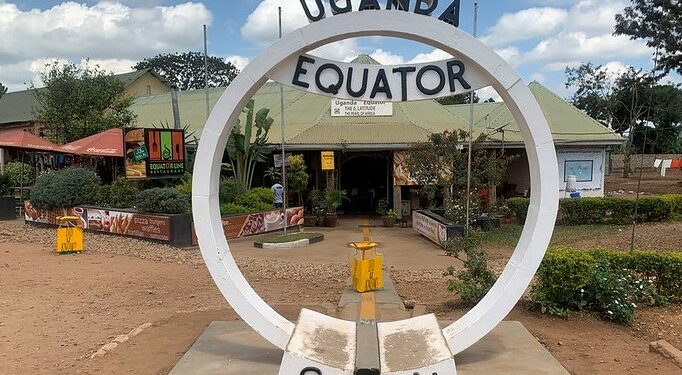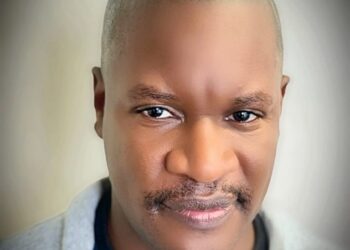Over the weekend, I drove down to Masaka with the kids and some other family members to pay homage to some of our relatives. The kids must have kept awake half the night, looking forward to the trip.
They woke up early and started knocking on my door before the scheduled departure time. They couldn’t wait for the trip to begin. An hour or so in the journey, we stopped by a famous café in the middle of nowhere to have breakfast. It is a private investment by the area Member of Parliament and it is becoming increasingly popular. They have tried to create a welcoming environment where you can easily stop and have a meal in a decent place. A decent place with clean and functioning toilets I must add.
On our way back, after Lukaya, the kids noticed many white flags in a swamp and asked what were those for. The white flags are scarecrows of sorts to keep the birds away from that rice farm in Lwera. We had to stop by and explain to them that rice isn’t grown in a supermarket!
It is then that my sister said that we needed to stop at the Equator so that the kids could be able to see it. We had scheduled to stop again at the café where we had had breakfast for a quick coffee but now, we had a change in plan. The equator could be more exciting. They could learn a thing or two.
The equator is supposed to be a major tourist attraction as it passes through only 13 countries in the world. But the Ugandan one is nondescript that we passed it in the morning without noticing. There are some oval pieces of concrete on either side of the road that most people can pass without noticing.
A jungle of makeshift restaurants and curio shops has been set up on either side of the road. They are as unremarkable as they come. A few young men try to wave down whatever vehicle they suspect to be carrying tourists so they could earn a commission explaining how water spins in a funnel differently depending on the hemisphere where one is located. And how it doesn’t spin at all while on the equator line.
The young man we met who worked as a guide to explain all this gave us a certificate that we have been at the equator, which we could display somewhere (it is amateurly designed to be put in anybody’s office or home). He was courteous and engaging and seemed to know his stuff.
The equator if marketed well can be serious tourism but the starting point should be redesigning the area so that tour guides don’t have to wave at vehicles suspected to be of tourists to stop. The area can be built in a way that anyone driving on that road would marvel at it and be promoted to stop. If an individual MP can build a proper restaurant 3km or so down the road from the equator, what about the government of Uganda?
The Uganda Tourism Board (or whoever is responsible) or its parent ministry doesn’t need to go to the World Bank to borrow money to do this. The first point should be to get a good architect to work with the Uganda National Roads Authority (UNRA) teams to change the road design in the area to make it attractive to the eye that people who can stop at it without even being prompted by human beings on the roadside.
The design would also ensure safety for pedestrians to cross to either side. When we stopped by the equator on the left-hand side from Masaka, we couldn’t take photos on the same side because of the direction of the sun at the time. So we had to cross to the right hand side. But the traffic was high, the Masaka-Kampala Road being one of the busiest highways in Uganda. It took us a while to cross and with a kind motorist who saw us with the kids and stopped and signaled the other vehicles to do the same. Even then we were not sure we wouldn’t be ferried down by boda bodas speeding in all sorts of direction.
Proper restaurants with toilet facilities should be built and restaurants equipped and trained to handle tourists. Nearby areas could be turned into attractions where tourists could learn about coffee and matooke farming, bark cloth making, brewing local beer and such other things. I think also one of the Uganda martyrs hailed from a nearby village. All these can be packaged and sold to tourists.
A proper hotel could be built so that tourists can spend a night here than just stopping to buy kitenge (sold everywhere you go in Africa), drink instant imported coffee (in a country that grows some of the best coffee in the world) before watching a demonstration of water spinning differently and then going away. Uganda tourism must think beyond wildlife and use attractions like the equator to create significant inroads into this market worth of billions of dollars.
The writer is a communication and visibility consultant. djjuuko@gmail.com
Do you have a story in your community or an opinion to share with us: Email us at editorial@watchdoguganda.com













